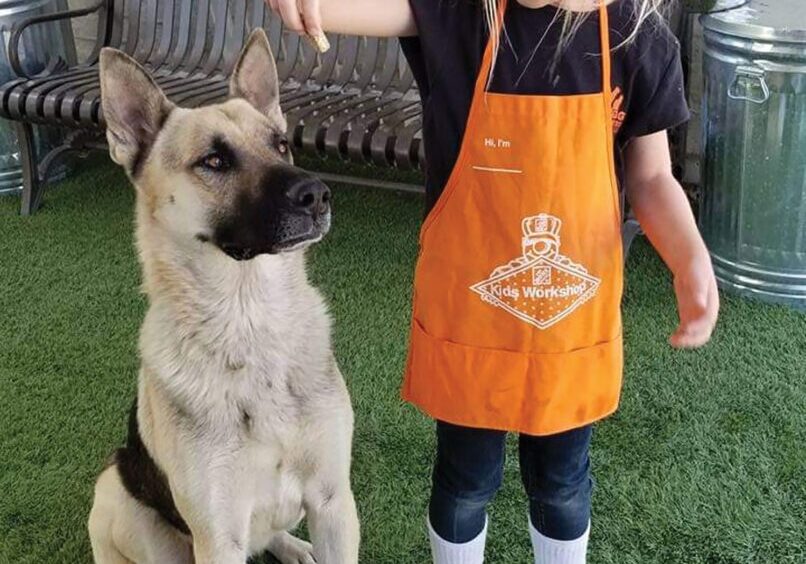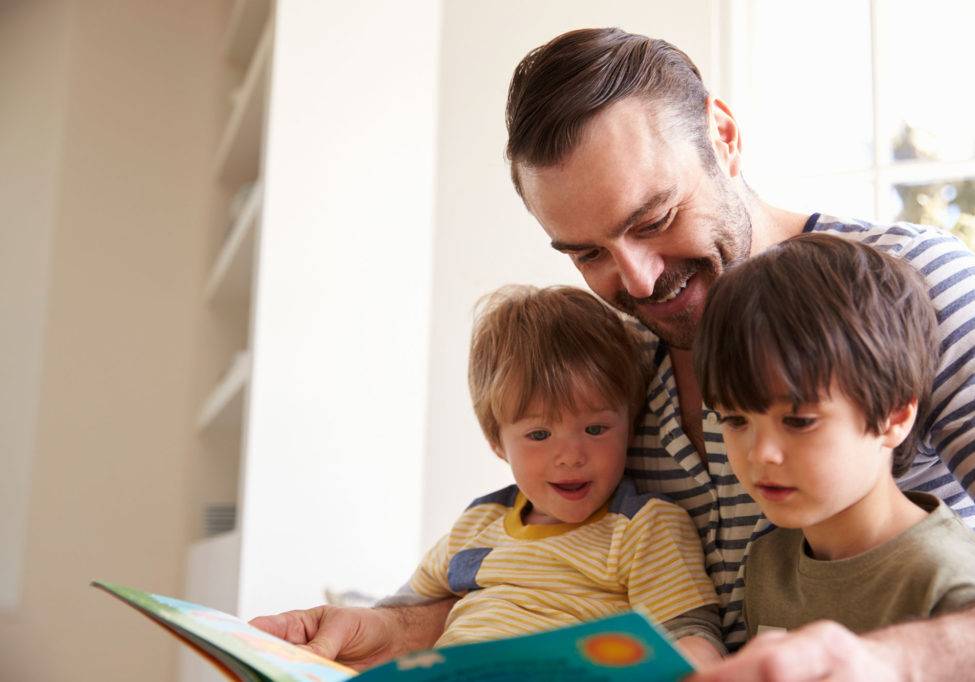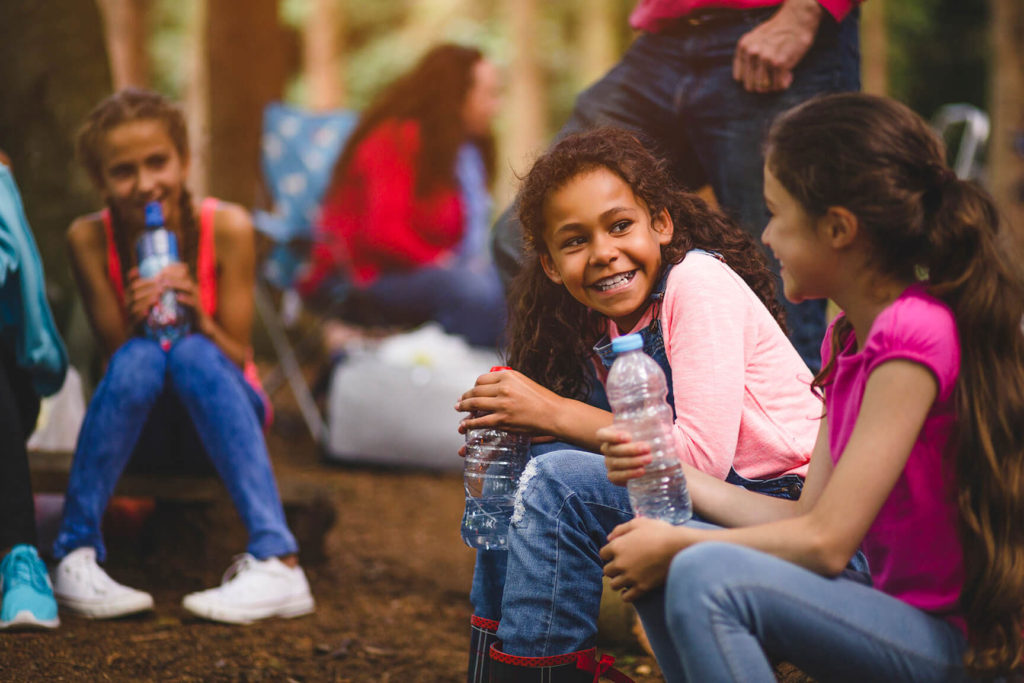We often hear about the many negative aspects of peer pressure and worry that our children’s friends could push them down a path of troubling behavior like bullying or drug use. Fortunately, positive peer pressure can play a major role in building our children’s happiness. When friends try to influence others to do something positive, proactive, or productive, their encouragement leads to positive change and growth.
Positive peer pressure leads to better choices
Our kids’ friends can be a great support to them as they face challenges, try out new things, and explore new ideas. These friends can provide the kind of relationship and support that only a peer can give them. They accept them for who they are, which can help our kids feel more confident and comfortable in their own skin. These friends can also serve as a positive role model to push our child to gain new experiences, and ultimately be a better person.
Tackling new tasks takes courage and confidence, and this can be easier with a buddy who serves as a mentor to help along the way. This type of peer support can also help kids overcome their fears, whether it is trying out for a sports team or giving a presentation in front of the class. We cannot always be there to support our children, so it is wonderful when they have a group of friends who fill that role throughout their day.
A friend who provides positive peer pressure also helps direct our kids on a path that leads to better choices. For example, if a child is bullied at school, he may want to retaliate and start a fight. A friend with positive peer characteristics would encourage the boy to take a few deep breaths, walk away, and tell a trusted adult about the incident. Our kids will surely face difficult situations, so having friends who provide moral support and encouragement can truly make a positive impact on their lives.
Friends can be a good influence on our children
Whether it is studying for a test, joining a club after school, or choosing not to smoke or drink, certain friends can provide this much needed positive peer pressure. Some examples include:
Making fitness a priority
A friend who prioritizes fitness can be a positive influence on our kids, inviting them to go for a bike ride, take a fitness class together, or play a game of ball. Team sports and fitness activities also build camaraderie and provide a healthy social outlet.
Serving others
Serving others can improve our own happiness. Many schools now encourage or require students to commit to a certain number of community service hours, which has spurred many creative kindness projects. Some kids have started their own charities and engaged friends and family in helping others. This type of friend can be a huge influence on our kids to get more involved in volunteering. If they see others taking part in a volunteer project, it may inspire them to join in and give back, too.
Ending gossip
It is extremely easy to spread gossip without stopping to think about the consequences for the person being bad-mouthed. If our kids spend time with friends who focus on more important and interesting topics other than gossip, that is a huge win for everyone. That type of friend is the perfect example of someone exemplifying positive peer pressure.
Relationships are the key to a happier life
Scientific research from the world of positive psychology indicates that one of the most critical components of happiness is the relationships we have with others. Research at Harvard University that followed the lives of people for more than 75 years concluded that relationships are the key to a happier life. The happiest and healthiest participants in the study maintained close, intimate relationships. It is not about how many friends we have, but the quality and stability of those relationships throughout our lives that really matters.
On the other hand, depression is one of the most common mental health issues in the United States. According to the Anxiety and Depression Association of America, two out of 100 young children and eight out of 100 teens may have serious depression, causing them to feel discouraged, sad, hopeless, unmotivated, or disinterested in life.
Happiness spreads
One of the best ways for our children to overcome feeling blue is to spend time with positive friends. A recent study of 2,000 American high school students found that depression does not spread among peers, but a healthy mood does. A Harvard Medical School study found that one person’s happiness spreads through their social group up to three degrees of separation, that this effect can last as long as a year and that having a happy friend can improve our likelihood of being happy by 15%.
Pay attention and help build a positive community
It is critical that we pay attention to the type of friends our children are attracted to. If there are any red flags, we can redirect them to more positive friends they can look up to and who inspire them to become the best person they can be.
We can also inspire our children by being positive in our own lives. Our children are watching how we interact with our spouse, friends, neighbors, and colleagues and will mimic our behavior. If they see us arguing all the time with others, this could impact how they interact with their own friends. We can build a positive community for our children from a young age by participating in group activities such as playdates, team sports, community service projects, neighborhood gatherings and other relationship-building events.
Posted in: Youth & Teen
Comment Policy: All viewpoints are welcome, but comments should remain relevant. Personal attacks, profanity, and aggressive behavior are not allowed. No spam, advertising, or promoting of products/services. Please, only use your real name and limit the amount of links submitted in your comment.
You Might Also Like...

Strengthen Emotional Intelligence as a Family
Children do what we do, not what we say. As we manage – or don’t manage – our own emotions and behaviors, we usher our children into the same coping […]

Teaching Children Responsible Pet Ownership
When I think about things that make my heart smile, two things often come to mind: puppies and children. As many families will attest, adding a pet to your home […]

Read Across Siskiyou: 14 Years Promoting Childhood Literacy
Every once in a while an idea comes along that transforms an individual, a community, and sometimes even the world. Since the childhood literacy program Read Across Siskiyou (RAS) was […]

Not Your Mama’s Etiquette Class: Teaching Teens in the Digital Age
Etiquette, throughout the ages, has been a general set of social norms and expectations or a code of conduct on which a group agrees. These codes typically haven’t been global […]




